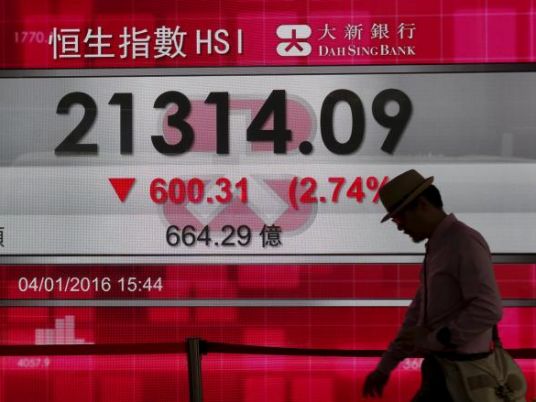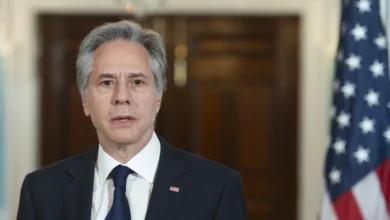
China moved to shore up shaky sentiment on Tuesday a day after its stock indexes and yuan currency tumbled, rattling markets worldwide, but analysts warned investors to buckle up for more wild price swings.
Stocks fell more than 2 percent in early trade, prompting fears that exchanges were set for a second day of panic selling after a 7 percent dive on Monday set off a new "circuit breaker" mechanism, suspending trade nation-wide for the first time.
But both the central bank and stock regulator reacted quickly, and major indexes clawed back some ground by early afternoon, albeit in skittish trade.
China moved to shore up shaky sentiment on Tuesday a day after its stock indexes and yuan currency tumbled, rattling markets worldwide, but analysts warned investors to buckle up for more wild price swings.
Stocks fell more than 2 percent in early trade, prompting fears that exchanges were set for a second day of panic selling after a 7 percent dive on Monday set off a new "circuit breaker" mechanism, suspending trade nation-wide for the first time.
But both the central bank and stock regulator reacted quickly, and major indexes clawed back some ground by early afternoon, albeit in skittish trade.
The People's Bank of China (PBOC) poured nearly $20 billion into money markets, its largest cash injection since September, and traders suspected it was using state banks to prop up the yuan CNY=CFXS at the same time.
The China Securities Regulatory Commission (CSRC), for its part, announced it was planning new rules to further restrict share sales by major stakeholders in listed companies, and said it would further tweak the circuit breaker mechanism.
By 0605 GMT, the CSI300 index .CSI300 was off 1 percent.
How long any reprieve will last is still in question.
In a dilemma similar to the US Federal Reserve's recent tapering of its stimulus program, Beijing is trying to orderly unwind a massive and unprecedented stock market rescue last summer, while pressing ahead with reforms to allow markets to have a greater say in determining the yuan's value.
Its heavy handed approach to the stock market crash and its surprise devaluation of the yuan in August had called its policymaking into question and sparked global market volatility.




